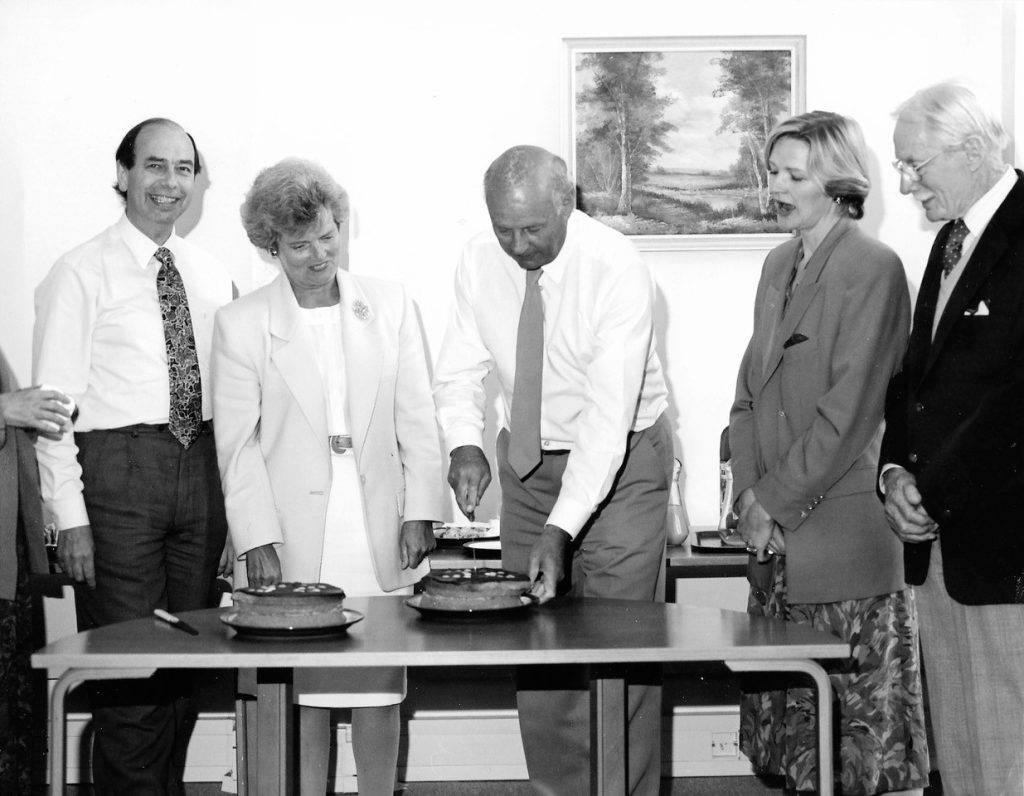Tribute to Alastair Watson
Kindly written by Hugh Bradby
I first came to know Alastair Watson when I joined the Council of Interserve England, Wales and the Islands (EWI) in the early 1990’s. Ruth and I had then recently returned to the UK after serving for 17 years with Interserve in South Asia. It was a privilege for me to serve on the EWI Council, and during those years I came to have a deep respect for Alastair as our Chairman.
Alastair was a person who carried great authority. His knowledge of South Asia was exhaustive and detailed, extending right back to his earliest days and upbringing there. He seemed to know everybody and everything that needed to be known about Interserve, its history, its people and the countries in which its ministry was carried on. He was also well informed and well connected in the world of his professional expertise, as a highly effective member of the legal profession. This enabled him to speak helpfully and definitively on any issues which cropped up at our Council meetings which had legal, financial or administrative implications.

Left to right: Alastair Watson (former chairman), Judy Pont, wife of Arthur Pont next to her (former National Director), Jean Watson (Alastair’s wife), Alan Norrish (Former International Director)
With thanks to Nishi Sharma for kindly providing this wonderful picture.
As Council Chair, Alastair was, in the best sense of the word, unpredictable. Meetings when he was in the chair were never boring. He moved agenda items along, never allowing us to stray from the main point under discussion and always encouraging all of us to participate. I owe much to his encouragement in this regard. Alastair wanted everyone to have their say, and he never allowed anyone to think that their opinion was of no value. Furthermore, he was outspoken in his insistence that all Council members should feel free to speak their mind. I remember on more than one occasion that he argued forcibly that our Council should include people whose ideas were forthright and who had the passion and inclination to put such ideas forward even when they were perhaps not in exact accordance with the trend of majority opinion. I have subsequently seen the value of Alastair’s wise policy in this regard. It found practical expression in the way he went about involving new Council members, striving always for diversity of opinion, proper representation and the inclusion of all who had a useful contribution to make to the Council’s deliberations, especially those of the younger generation. As well as being an incisive Chair, he also had a well-developed sense of humour, combined with the gift of being able to lower the temperature around the table on rare occasions when tempers were in danger of becoming over-heated
The relationship between the Council Chair and the National Director is of pivotal importance in an organization such as ours. From my observation, I would say that Alastair related both to Arthur Pont and later to Richard Clark in just the way that a judicious Chair should. He did not try to do their job for them, but at the same time he demanded (and invariably received) proper account of their stewardship and a reasoned explanation for all the plans they presented for carrying the work forward. If that was true for the National Director, it was equally applicable to Alastair’s relationships with other staff members.
So Alastair was professional, wise and effective in all the leadership he gave to Interserve, both in his chairing of the Council and in his leadership of public events such as the Swanwick conference, commissioning services and other similar occasions. But his real passion was for the work on the field, for those who had been sent out to preach and practice the gospel and especially for those who as a result of this work came into a saving knowledge of the Lord Jesus Christ. Across all countries of the Interserve world, many will have cause to be thankful for the efforts which Alastair tirelessly put in to make sure that the Great Commission was carried out. Of Alastair it could accurately be said, in the words of Paul, “All this is for your benefit, so that the grace that is reaching more and more people may cause thanksgiving to overflow to the glory of God” (2 Cor. 4:15)
